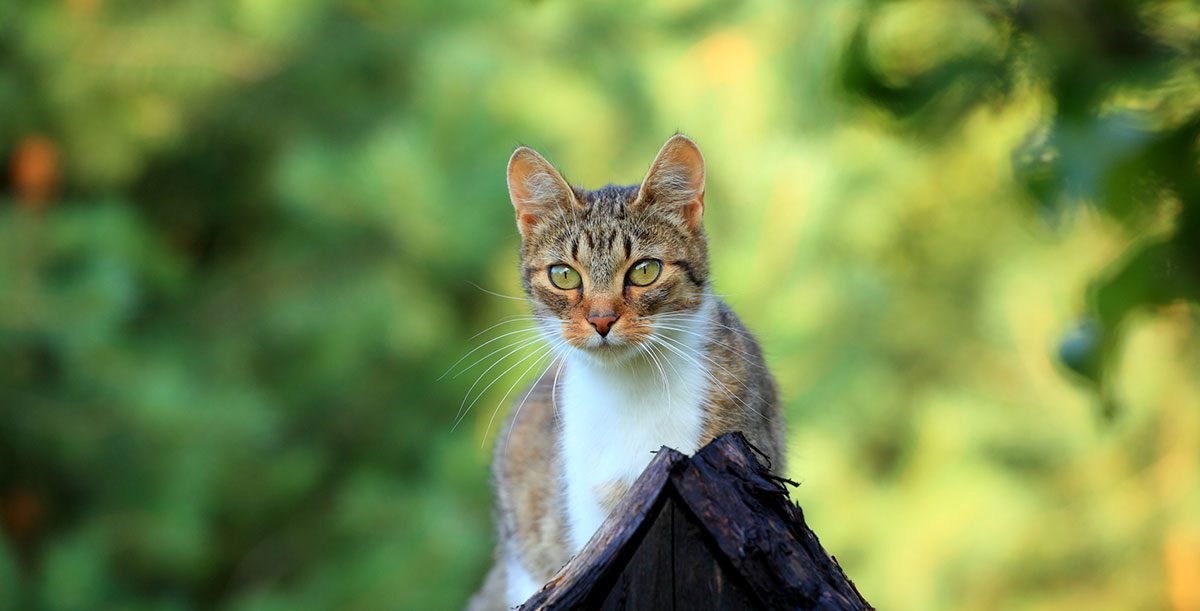Do you live in Texas and have a curious cat that likes to explore outside? Sadly, there are a lot of plants that are toxic to cats in Dallas, TX. These plants are in the wild and are hard to get rid of. This is why it is important to know exactly which plants are toxic to cats in Texas.
Keep reading our animal hospital’s blog post to find out more about five Texas plants that are toxic to cats. Although there are more than five, these are especially toxic and can lead to death as well as seizures and other serious and permanent health conditions.

5 Texas Plants that are Toxic to Cats
To help your cat avoid Texas toxic plants, we need to know what they are. Listed below are five common toxic plants that are everywhere in Texas.
Sago Palm
The thing about Sago Palm is that it is toxic to almost all pets, including cats. This is a plant that can be found through Texas, but is especially common in the South, near the coast. Sago Palm is a shrub that acts like a palm tree. They are common decorations for front yards and look like mini palm trees.
Although the leaves and branches are similar, this plant is especially toxic to cats if consumed. It is okay to play with the leaves and be around the scent of a Sago Palm, but cats that consume and digest this plant experience extreme diarrhea, vomiting, and liver failure. You should think twice before adding this decorative plant and shrub in your home.
Lilies
As beautiful as lilies are, they are especially poisonous to cats, no matter the variety and growing space. These gorgeous flowers are delicate and a favorite to grow in Texas because they thrive in the growing conditions of spring and autumn.
Don’t let the beauty of this plant trick you though. If your cat takes a sneaky little bite, they can end up in the vet hospital for an emergency. The symptoms of eating a lily plant include kidney failure, vomiting, and inability to hold down water. This is super dangerous as it can cause dehydration and lead to seizures from the lack of water and electrolytes in the body.
Onion
Did you know that there are many onion varieties that simply grow in the wild in Texas? These onions are super toxic and pet owners should try and pick them before their cats get to them. As delicious as they smell, they are extremely toxic. Just like your cat should not eat onions from your plate, they should not consume raw onions in the wild.
Check out your front and back yard to make sure that there aren’t any growing. Your cat is likely to almost immediately start struggling to breathe as onions completely disrupt the functionality of the red blood cells in their system.
Garlic
The issue with garlic is a very similar problem and effects to what onions due to cats. Garlic has an intense smell that sometimes attracts cats that are curious about the edible plant. This is a big problem though as eating even small amounts of garlic can immediately send your cat with an elevated heart rate and destroyed red blood cells to the vet where they will need a blood transfusion to get rid of the garlic toxins.
Oleander
Another flowering plant makes this list: Oleander is a common Texas plant that is not only extremely toxic to animals, but a single leaf can possibly kill a human. If ingested, Oleander can cause low heart rate, vomiting, exhaustion, and even death. If you suspect your pet has ingested Oleander, seek medical attention as soon as possible.
What To Do If Your Cat Has Eaten a Toxic Plant
If you notice that your cat is acting strange, trust your gut and instincts. Take them immediately to your vet. If you know exactly what they have consumed, you should tell your vet right away as they will need to know before choosing the best course of action.
On your way to the vet, provide your cat with hydrating water and encourage them to drink it. This can sometimes cause vomiting, which is good since vomiting will also get rid of the toxins. As long as there is no blood in the throw up, your cat should be ok, but will definitely need a blood transfusion and medical attention. If your cat is having a seizure, you should keep them stable, but don’t force their body to stay still. This can cause more pain and damage.
Our Dallas, TX, Vets Are Here to Help with Cat Plant Poisoning
All in all, our loving pets need as much care and guidance as necessary. Sadly, there are a lot of beautiful plants native to Texas that are toxic to cats. This is very concerning if you live in an outdoor and rural area. If there are too many plants and you do not trust your cat not to take a bite, it may be necessary to bring them inside as a full-time cat with outdoor supervision.
If you feel your cat has eaten a toxic plant, please contact our Dallas, TX, animal hospital immediately at (214) 826-4166.


 Have an Emergency?
Have an Emergency?